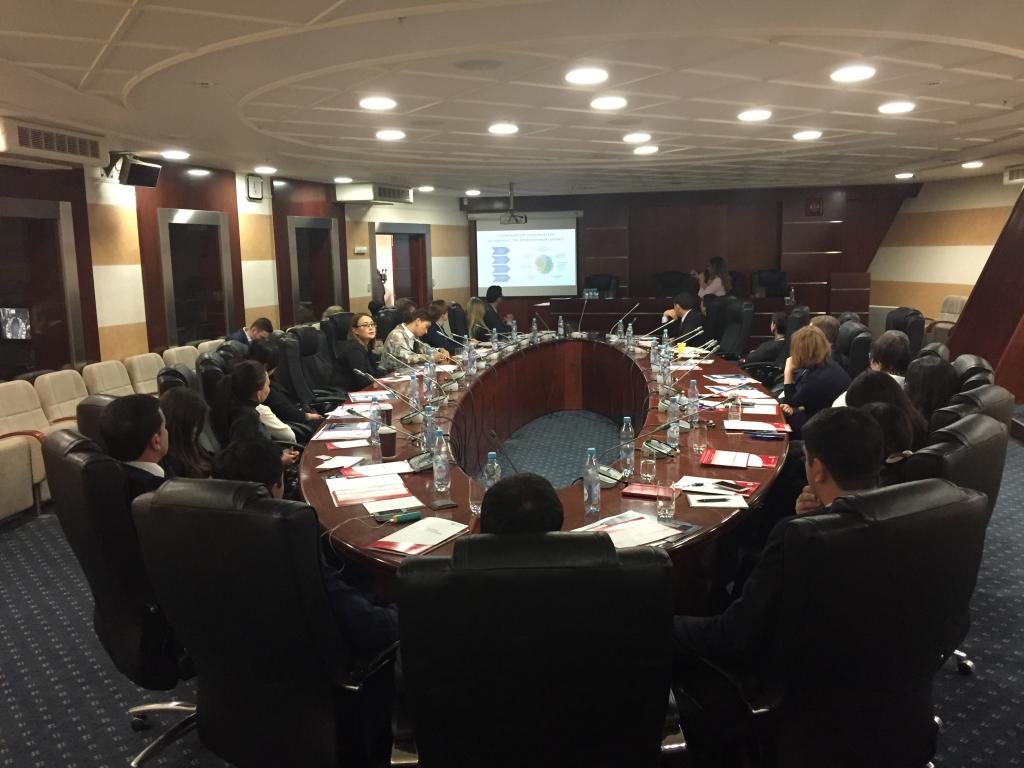UNITAR and MGIMO Successfully Completed Another Edition of the Regional Capacity Development Programme on International Environment Cooperation
 20 - 24 November 2017, Moscow, Russian Federation – Every year since 2011, UNITAR and the Moscow State Institute of International Relations (MGIMO) have been jointly organizing the Regional Capacity Development Programme for Government Officers from the Russian Federation and other Commonwealth of Independent States (CIS) countries. Each year, the Programme focuses on a different thematic based on the learning needs of the participants determined by UNITAR and the Russian Federation. This year the programme was entitled “International Environmental Cooperation: opportunities and risks for CIS and other countries”.
20 - 24 November 2017, Moscow, Russian Federation – Every year since 2011, UNITAR and the Moscow State Institute of International Relations (MGIMO) have been jointly organizing the Regional Capacity Development Programme for Government Officers from the Russian Federation and other Commonwealth of Independent States (CIS) countries. Each year, the Programme focuses on a different thematic based on the learning needs of the participants determined by UNITAR and the Russian Federation. This year the programme was entitled “International Environmental Cooperation: opportunities and risks for CIS and other countries”.
The main aim of the Programme was to enhance the knowledge and expertise of government officers from the Russian Federation and other CIS Countries on Environmental Cooperation. Throughout the five-day training participants were exposed to different issues related to environmental cooperation such as the 2030 Agenda and the Sustainable Development Goals, biodiversity protection, water resource management and climate change.
The participants included officials from different ministries of the Russian Federation, Kyrgyzstan, Kazakhstan, Syria, Belarus, Azerbaijan, Turkmenistan, Armenia, Tajikistan, Uzbekistan, and Ukraine.
The 28 participants benefited from the experience of several guest lecturers from different research agencies and universities who led them to explore the different areas of opportunity on environmental cooperation as well as provide them with hand-on practical experience through negotiation simulations and decision management workshops.
By the end of the workshop, the participants were able to better understand the links of multilateral environmental regulation in such areas as biodiversity protection, climate change and air pollution, sustainable production and consumption patterns, water resources management with a national level of environmental management and environmental protection, as well as their impact on trade and the development of individual sectors of the economy.

